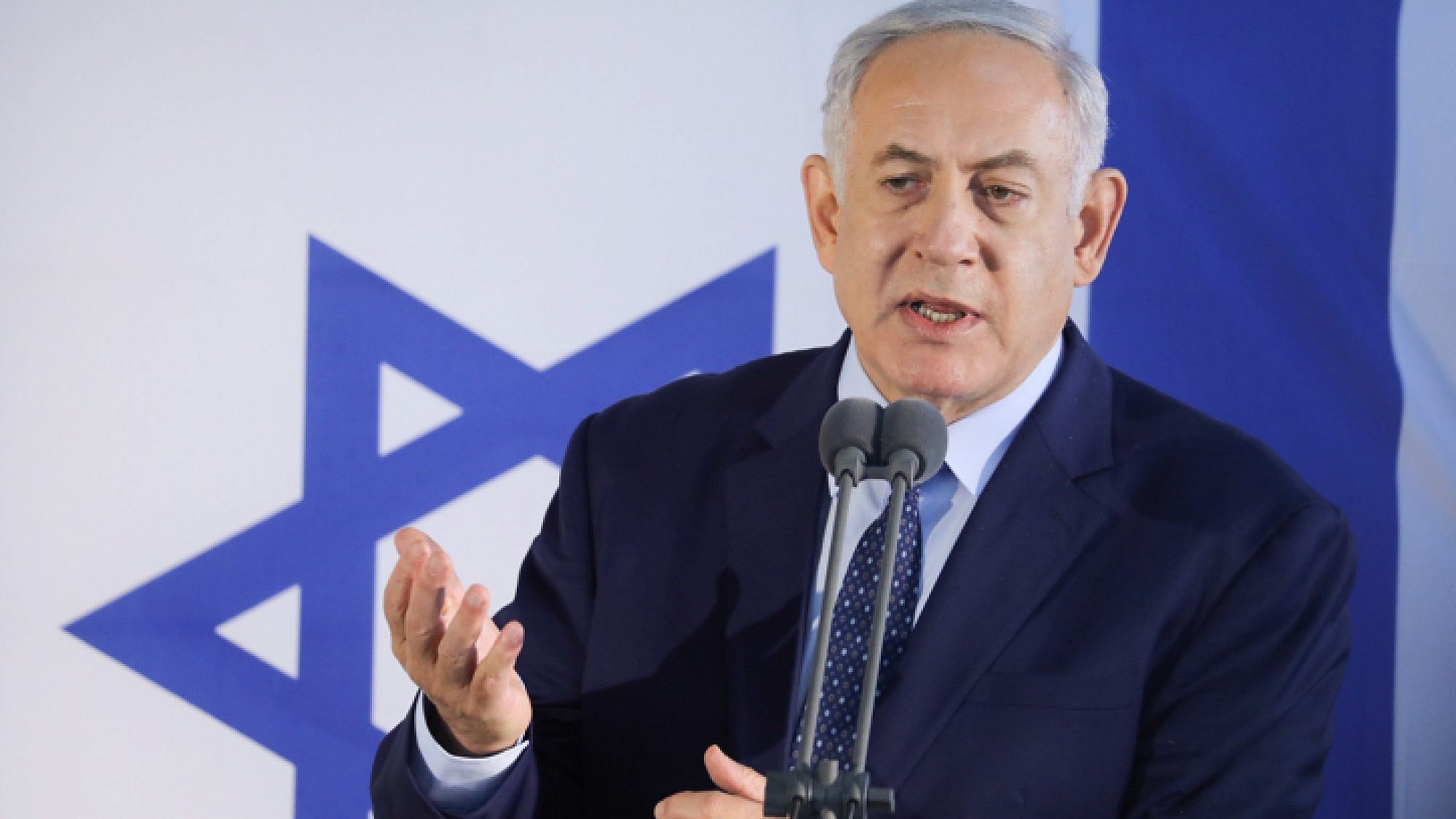In a prime-time televised address on Monday evening, Israeli Prime Minister Benjamin Netanyahu placed looming corruption charges against him at the center of the current election cycle, ahead of issues relating to security or other pressing socio-economic concerns.
Instead, in the seven-minute address, Netanyahu addressed indications that Attorney General Avichai Mandelblit is planning to announce his intention to indict the prime minister in as many as three separate corruption cases, following a lengthy pre-indictment hearing process that would likely begin but not conclude prior to the upcoming April 9 election.
Netanyahu also accused legal authorities of failing to interview witnesses that would potentially exonerate him. He also demanded the opportunity to speak face to face with state witnesses—former Netanyahu staffers that had provided testimony against their former bosses, even insisting that the interchange could take place on live television. Netanyahu also insisted that the very nature of the investigations do not constitute bribery, as no money changed hands in any of the cases.
As was expected, the address, which was the first of its kind in Israeli history, was met with strong reactions of support and perhaps even more criticism from across the political spectrum.
‘What do they have to hide’?
Likud Party Foreign Affairs Director Eli Hazan defended the prime minister, saying that a “double standard” is at play in the ongoing investigations.
“Netanyahu revealed that the police and prosecution failed to refute his claims [of innocence],” Hazan told JNS, calling the information that Netanyahu presented “priceless, even dramatic.”
Moreover, if the investigating authorities are so sure of themselves, why do they not allow him to confront the state’s witnesses, as is typical in such cases,” asked Hazan. “What do they have to hide?”
Hazan added that state prosecutors demonstrated extreme leniency to former prime ministers Ehud Barak, Ariel Sharon and his family, and Ehud Olmert when those leaders were simultaneously pushing policies that called for withdrawals from disputed territories.
Hazan said investigations against the former Israeli leaders included “fictitious associations that broke the law, on envelopes with money, on wages without real work.”
He called it “fascinating” that the leniencies were granted “in the name of [territorial] withdrawals,” while prosecutors “are now building a bunch of accusations about favorable coverage in Walla [in Case 4000] over a deal that never happened. If this is a bribe, what does that say about [Yesh Atid Party leader Yair] Lapid [who was also believed to have acted to secure more favorable coverage] or any politician who is not named Netanyahu?”
Hazan called the cases against Netanyahu “selective enforcement” that is being instituted “for no good reason.”
‘Pulling rabbits out of hats’
Meanwhile, Netanyahu was squarely attacked by parties both to the left and right of Likud following his seven-minute prime-time statement, given without opportunity for follow-up questions.
Labor Central Committee Member Meir Mishael said that “the ‘dramatic’ statement turned out to be another attempt to create fake drama and a bluff from the paranoid man who lives on Balfour Street in Jerusalem, who continues to incite against the law and legal systems.”
“Israeli citizens deserve a responsible government that puts the welfare of its citizens before the personal interests of the person who heads it,” he told JNS.
On the right, Jewish Home Central Committee Member Joshua Wander told JNS that the address was anything but dramatic. “Bibi [Netanyahu] pulling rabbits out of hats is starting to bore his audience,” said Wander. “His statement was unimpressive and anti-climactic.”
By making the address, Netanyahu was gambling that proactively keeping the allegations against him at the top the news will actually help him in the polls. Instead of the upcoming election being about issues of governance, Netanyahu is shifting the narrative of the election to a referendum on his personality, leadership and looming corruption charges.
His opponents appear similarly willing to make the election squarely about the embattled prime minister.
Whether Netanyahu’s gamble pays off will reveal itself in the polls over the coming weeks and in the election booth in April.


























